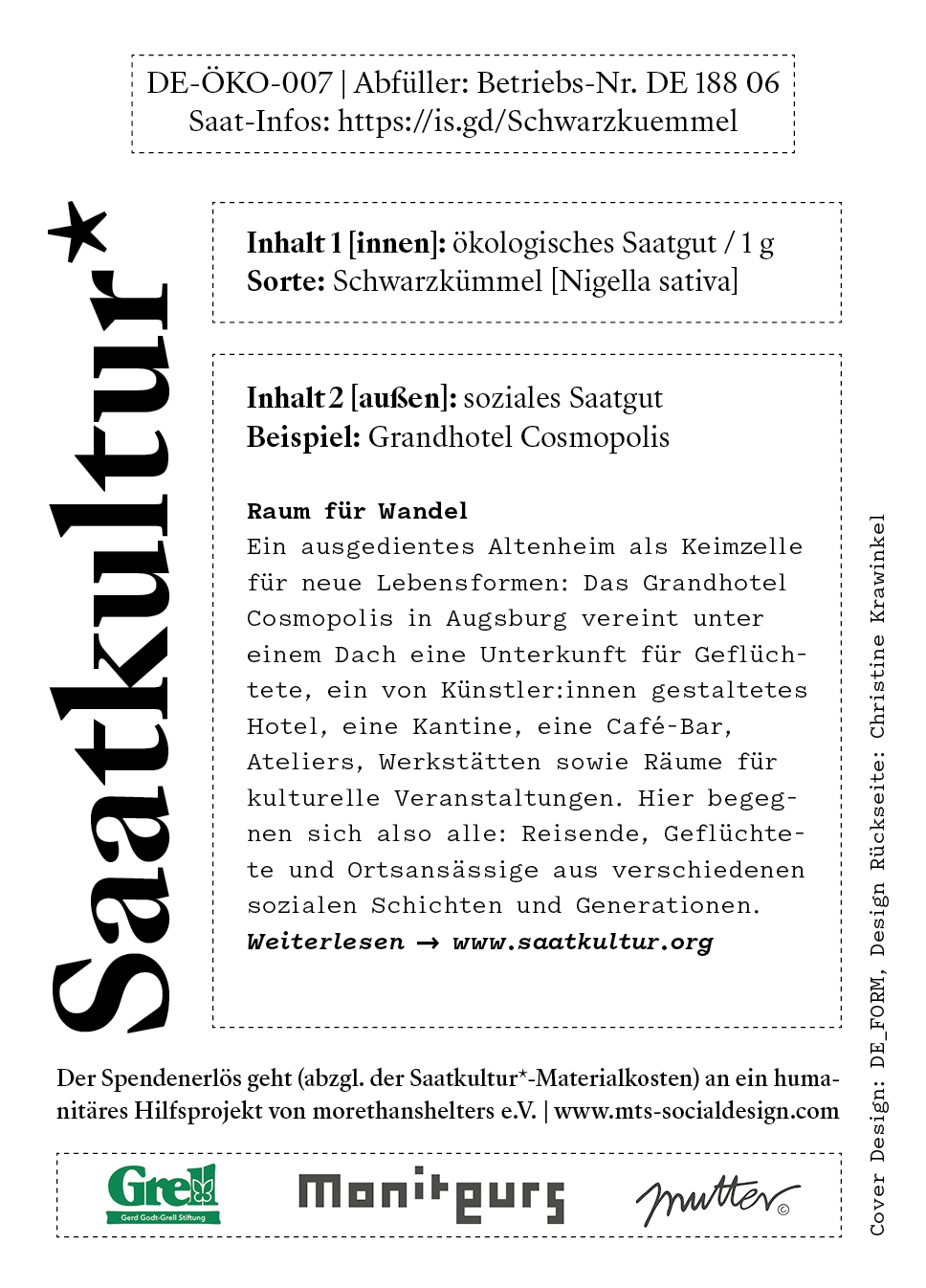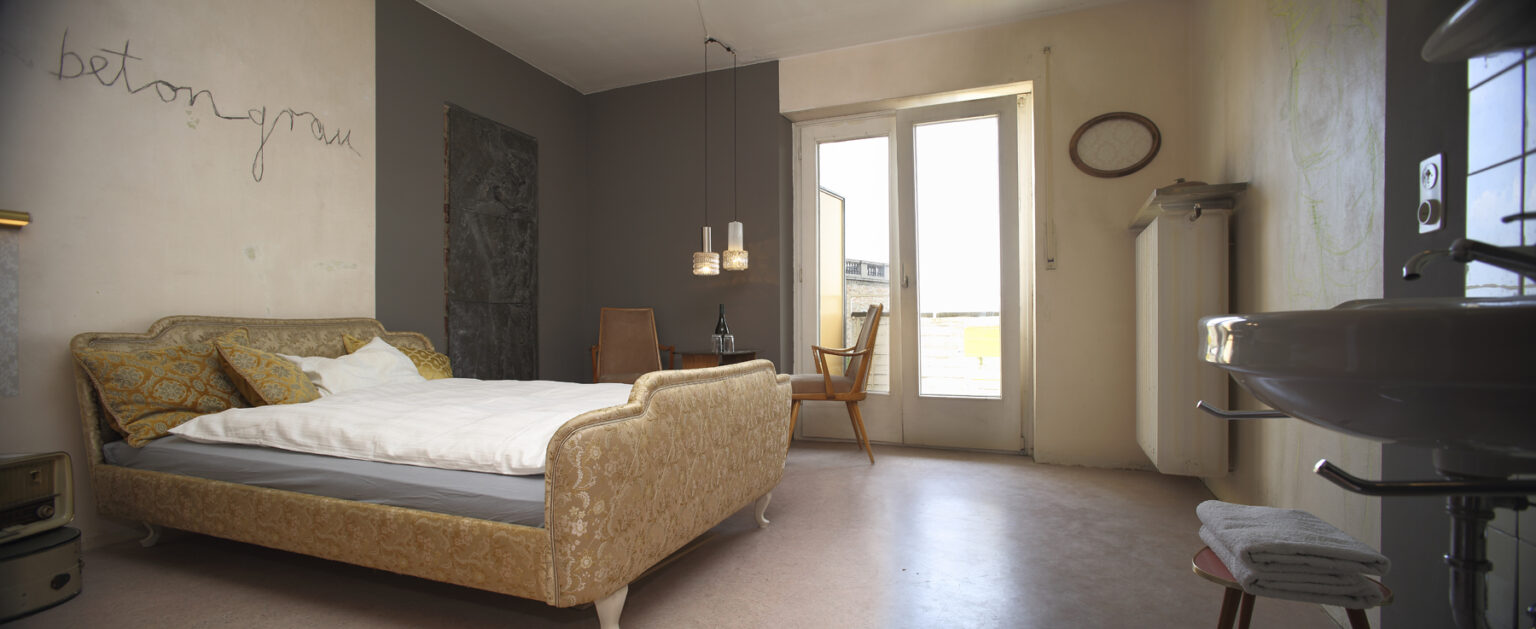
Grandhotel Cosmopolis
Space for change
The Grandhotel Cosmopolis in Augsburg brings together many different people under one roof and shows that everyone involved benefits from this coexistence.
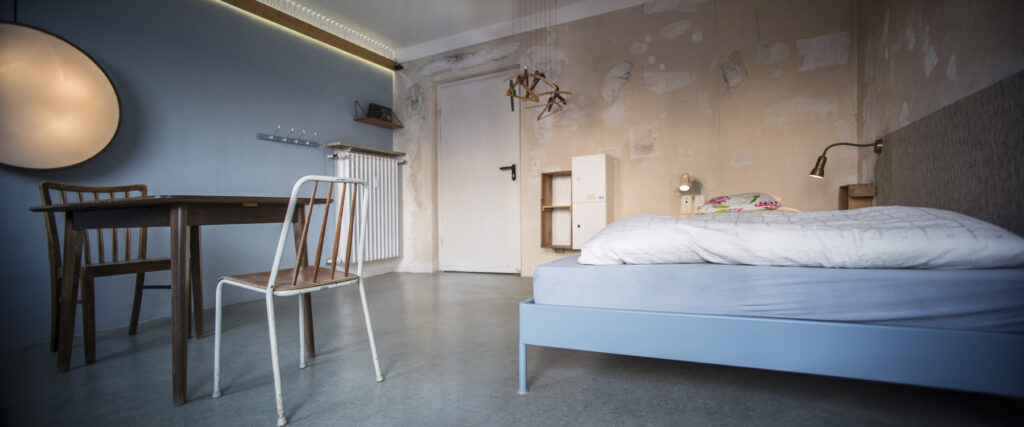
The 1960s building, with seven floors, 66 rooms and a total area of around 2,600 square meters, had been empty since 2007. In 2011, nearly 500 people came together and volunteered to help redesign the building. In line with the concept, the diaconia rents the building partly to the government of Swabia, which has been running an asylum shelter for around 65 residents since 2013, and partly to the Grandhotel Cosmopolis e. V., founded in 2012, which uses the remaining rooms in a variety of ways. In addition to running the hotel, the team of around 12 people also organizes concerts, readings, DJ evenings, exhibitions, performances and theater shows – as far as the pandemic has allowed for this.
For the initiators, the social relevance of the concept plays a central role: “Freedom, personal responsibility and solidarity are the pillars of the human image that form the basis for the Grandhotel,” explains the association. It sees the project as a “Gesamtkunstwerk” (synthesis of the arts), inspired by Joseph Beuys’ expanded concept of art and his idea of social sculpture.
The project is financed by both the proceeds from the hotel and gastronomy and donations to the non-profit association. The team also receives a subsidy from the city of Augsburg for its cultural work.
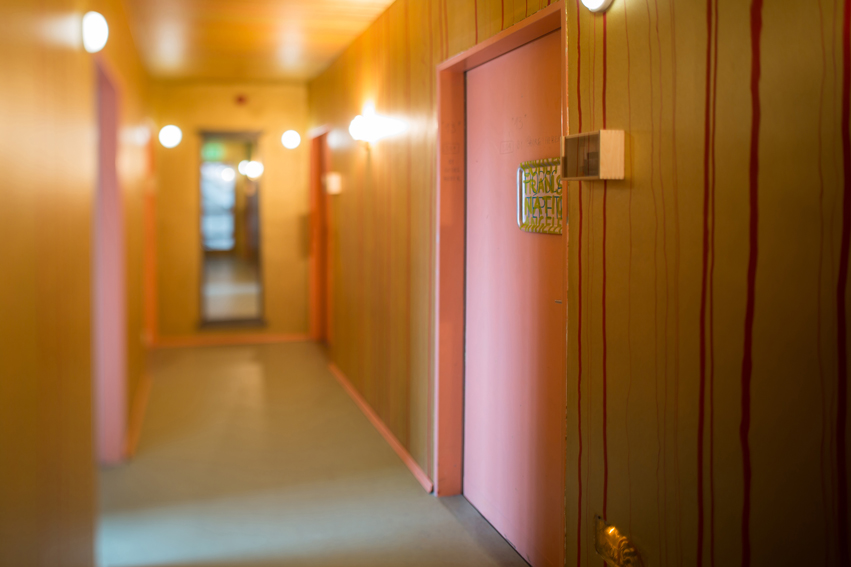
For the design of the 12 hotel rooms, the association engaged several artists, who created an atmosphere of individuality in each of the rooms. The authenticity was often preserved, so that the history remains part of the redesign, for example in the room Grande Dame by Esther Irina Pschibul or in the room Leuchturm by Lena Gätjens. Lotte Lindner and Till Steinbrenner created a room within a room under the title Irgendwo (Somewhere) – their wooden cabin, through whose small window one sees nothing but sky, is intended to offer refuge and at the same time an experience of what it means to be completely removed from a familiar context.
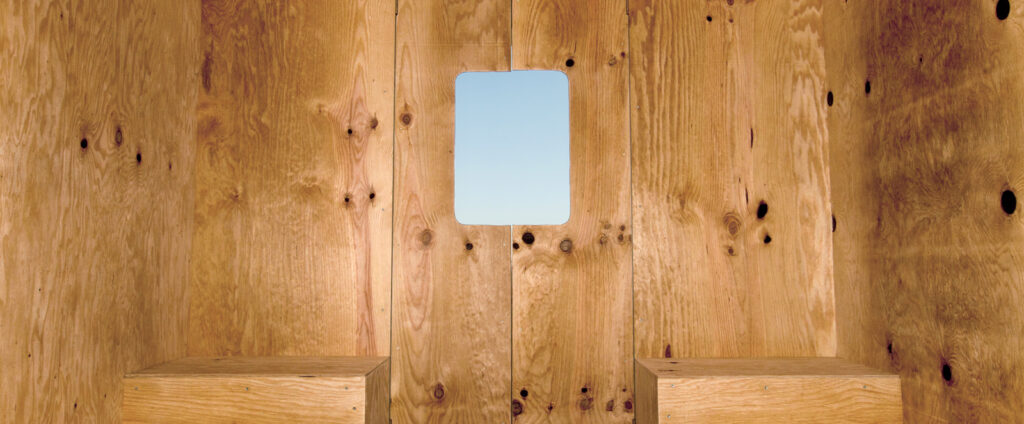
In the Grand Cuisine’s cosmopolitan kitchen, people from diverse backgrounds cook “traditional and experimental dishes.” Like the café, the Grand Cuisine uses organic ingredients that are mainly sourced locally for its vegetarian and vegan food. The prices of the hotel, the canteen and the café-bar are designed to be flexible. Based on a minimum value, guests decide how much they can or want to pay. This model also enables people with lower financial means to access what is on offer and at the same time appeals to the sense of responsibility and solidarity of others. Practice shows that it works!
In this way, the Grandhotel Cosmopolis has succeeded in creating a meeting place for travelers and local residents, for guests both with and without refugee experience and for people from different social classes and generations. The association has already won numerous prizes, including the Theodor Heuss Medal in 2016 for social commitment, civil courage and commitment to promoting our basic democratic order. It also received the special prize of the 2016 German Urban Development Award from the German Academy for Urban Development and Regional Planning (DASL).
Whereas everywhere in German cities, many still usable houses are being demolished for the purpose of new developments, the Grandhotel Cosmopolis e. V. helped this seemingly dead architectural structure to undergo an amazing metamorphosis. It has allowed forms of life to flourish from which not only refugees benefit and experience support and social participation rather than exclusion, but also many other parts of the population. Together, they all contribute to giving multi-faceted form to the idea of a better, fairer urban society.
Intro image:
The Grande Dame room by Esther Irina Pschibul [photo: © Frauke Wichmann]

